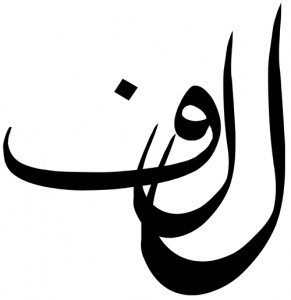By Annabel Symington
The Wall Street Journal, Feb. 25, 2013

Lahore, widely heralded as Pakistan’s cultural capital, hosted its first-ever literary festival over the weekend, attracting huge crowds to hear some of Pakistan’s literary giants discuss their work, their country and what it means to laugh.
At the two-day Lahore Literary Festival, it was the other side of the city that was on display: the Lahore of rich history, culture and debate that has been gradually eroded by contemporary Pakistan’s challenges: strained sectarian divisions, a worsening security situation and a ruling class with little credibility.
“It’s great to see debate without the lynching,” said Fasih Ahmed, one of founders of the festival, in a reference to the blasphemy laws that have widely stifled discussion in the country.
Around 10,000 people passed through the gates of the festival’s venue, the Alhamra cultural center, on day one alone, according to official figures.
The excitement was palpable, and the audience whooped and cheered as the main auditorium was plunged into darkness by one of Lahore’s infamous power cuts.
“This is something that should have happened 70 years ago,” said Nusrat Jamil, director of Latitude, a public relations firm that has managed the promotion of the festival.
There was an acute self-consciousness pervading many of the panels about what it means to be a Pakistani writer, as decisions of literature and art became caught up in discussions about the challenges facing contemporary Pakistan.
On a panel Saturday with bestselling authors Daniyal Mueenuddin and Moni Mohsin, the discussion focused on whether—as Pakistani writers—there were certain topics they avoided.
Ms. Mohsin—famous for her work The Life of a Social Butterfly, about a ditzy Lahori socialite—dismissed the question saying that she simply didn’t write about mullahs because she didn’t know anything about the life of a mullah.
“Of course there is a censorship that we have to impose on ourselves because we are in Pakistan,” Mr. Mueenuddin retorted, “But does it matter that we self-censor?” he questioned to nervous titters in the audience.
Some writers appeared to push against assumptions tied to their nationality, while others embraced it as an unavoidable—and commercial—reality.
The decision to write in English or Urdu was discussed as an equally fraught political statement. “The stuff that gets published in English are the things that fit into the narrative of Pakistan,” said Musharraf Ali Farooqi, who said he would write in Urdu if there was a large enough publishing industry.
Ms. Mohsin dismissed that there was any political statement in the choice of language. “I went to an English medium school and feel more comfortable writing in English,” she said.
H. M. Naqvi, author of the award-winning novel Homeboy, in an interview described English as much a language of Pakistan as Urdu. “They are both imports,” he said.
“English has a tradition that is as deeply routed in Pakistan as Urdu but there is a misplaced anxiety about it,” he said, “The bigger question is: Will Pakistani literature transcend this easy categorization?”
Ms. Mohsin and Mr. Naqvi both described how once they had achieved fame in the West they were asked by the international media to write columns about Pakistan. They both pushed back, saying that being Pakistani writers did not qualify them to write about the Pakistan of the headlines.
The definition of Pakistan promoted by the daily news beat appeared to be what the Lahore Literary Festival is seeking to reclaim.
“Lahore’s cultural heartbeat just dissipated,” said Mr. Ahmed, “It feels amazing to feel like we’ve contributed something to reviving it.”
See the original article here.


